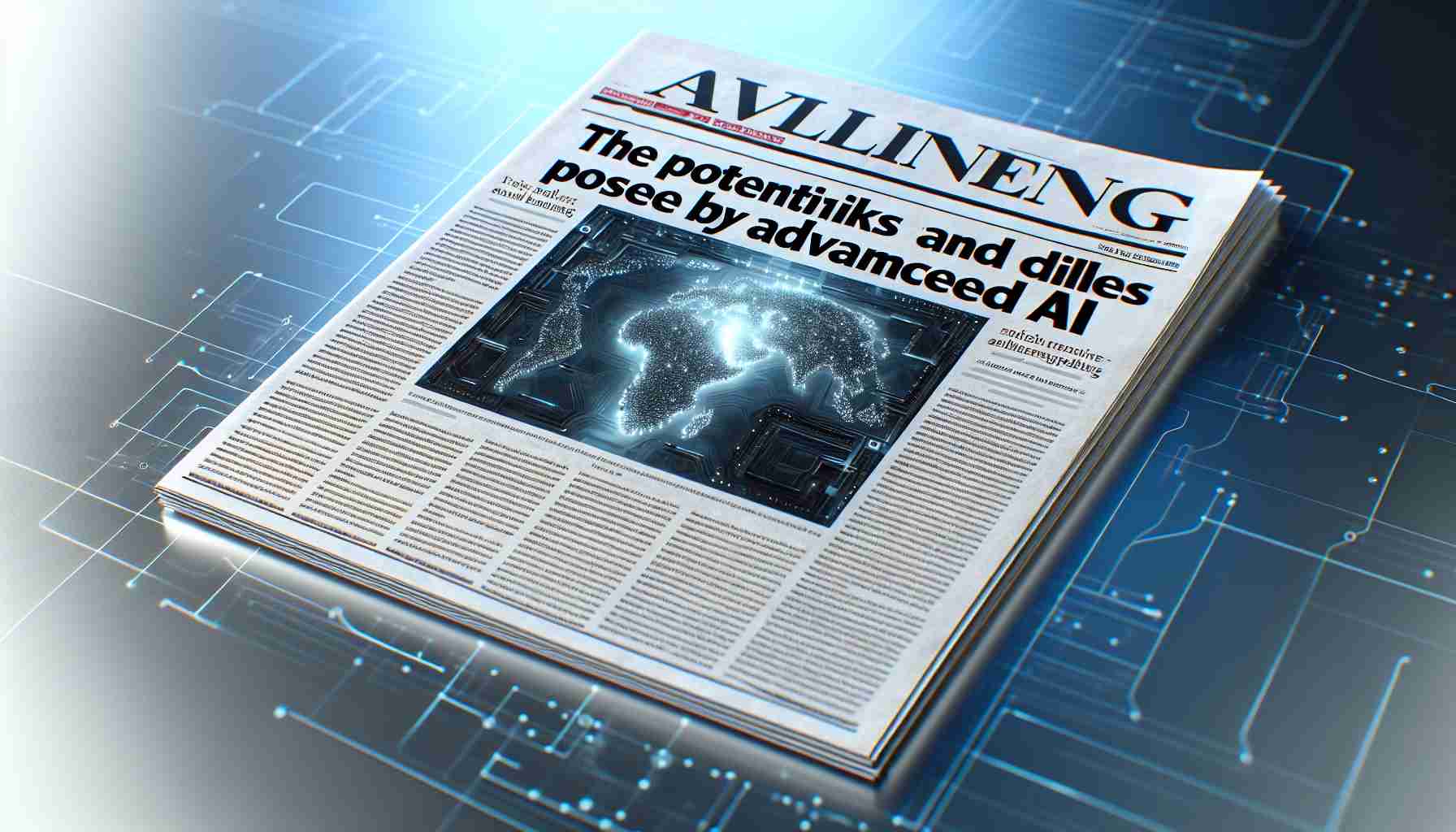Artificial Intelligence (AI) has become an indispensable part of our technological progress, but recent studies suggest that its advancements hold significant risks for our society. A commissioned report by the US Department of State has revealed alarming findings about the potential dangers associated with the future development of AI. While AI is expected to revolutionize industries and improve efficiency, there are concerns that it may eventually pose a threat to both livelihoods and human life.
The comprehensive 284-page report, conducted by AI startup Gladstone, highlights the risks of AI weaponization and the potential loss of control over advanced AI systems. The report defines artificial general intelligence (AGI) as a future system that surpasses human capabilities across various domains, posing unprecedented risks. Catastrophic consequences, including the potential for human extinction, were identified as possible outcomes.
In order to compile the report, Gladstone engaged with 200 industry stakeholders and workers from renowned AI developers such as OpenAI, Google DeepMind, Anthropic, and Meta. The insights gathered from these individuals, combined with a historical analysis of similar technological advancements, formed the basis of the report. Comparisons were made to historical events like the arms race to nuclear weapons, emphasizing the need for caution and proactive measures in the face of advancing AI technologies.
Among the risks identified in the report, the potential weaponization of AI was deemed particularly high. The report identifies possible scenarios such as biowarfare, mass cyber-attacks, disinformation campaigns, and the use of autonomous robots as weapons. Concerns regarding cyber attacks were highlighted by Gladstone’s CEO, Jeremie Harris, while the company’s CTO, Edouard Harris, expressed apprehension about election interference.
Additionally, the report underscored the high risk of losing control over advanced AI systems. Should this happen, the consequences could range from mass-casualty events to global destabilization. The report draws attention to the concerns voiced by AI experts in leading labs, who believe that AI systems developed in the next few years could potentially be capable of executing malicious actions, assisting in the design of bioweapons, and directing human-like autonomous agents towards specific goals.
These findings warrant careful consideration as we continue to embrace and advance AI technologies. While the benefits of AI are undeniable, it is crucial to prioritize the safety and security of such systems. The State Department’s intention to implement an action plan based on the report’s recommendations is a step towards mitigating the perceived risks and ensuring that AI develops in a way that benefits humanity.
Frequently Asked Questions (FAQ)
1. What is artificial general intelligence (AGI)?
AGI refers to a future level of AI where machines possess cognitive abilities surpassing human intelligence across various domains.
2. What are some potential risks associated with advanced AI?
Some risks include AI weaponization, which can involve biowarfare, cyber-attacks, disinformation campaigns, or the use of autonomous robots as weapons. There is also a risk of losing control over advanced AI systems, leading to potential mass-casualty events or global destabilization.
3. Who contributed to the report on AI risks?
The report included insights from 200 stakeholders in the industry, along with workers from prominent AI developers, such as OpenAI, Google DeepMind, Anthropic, and Meta.
4. What are the concerns of AI experts mentioned in the report?
AI experts voiced concerns that AI systems developed in the near future may have the capability to carry out malware attacks, contribute to bioweapon design, and direct autonomous agents towards certain goals.
5. What steps will be taken to address the risks?
The report’s recommendations will inform an action plan aimed at increasing the safety and security of advanced AI systems, according to the US Department of State.
Definitions:
– Artificial Intelligence (AI): The simulation of human intelligence processes by machines, typically computer systems, to perform tasks that normally require human intelligence.
– Artificial General Intelligence (AGI): A future level of AI where machines possess cognitive abilities surpassing human intelligence across various domains.
Key Terms:
– Weaponization of AI: The use of AI technologies for military purposes, such as developing autonomous weapons or conducting cyber warfare.
– Biowarfare: The use of biological agents or toxins to harm or kill humans, animals, or plants as part of an act of war.
– Cyber-attacks: Deliberate and malicious actions aimed at compromising computer systems or networks, often for disrupting operations or stealing sensitive information.
– Disinformation campaigns: Coordinated efforts to spread false or misleading information, often for political or strategic purposes.
– Autonomous robots: Robots capable of performing tasks and making decisions without human intervention.
– Global destabilization: The disruption or destabilization of political, economic, or social systems on a global scale.
FAQ:
1. What is artificial general intelligence (AGI)?
AGI refers to a future level of AI where machines possess cognitive abilities surpassing human intelligence across various domains.
2. What are some potential risks associated with advanced AI?
Some risks include AI weaponization, which can involve biowarfare, cyber-attacks, disinformation campaigns, or the use of autonomous robots as weapons. There is also a risk of losing control over advanced AI systems, leading to potential mass-casualty events or global destabilization.
3. Who contributed to the report on AI risks?
The report included insights from 200 stakeholders in the industry, along with workers from prominent AI developers, such as OpenAI, Google DeepMind, Anthropic, and Meta.
4. What are the concerns of AI experts mentioned in the report?
AI experts voiced concerns that AI systems developed in the near future may have the capability to carry out malware attacks, contribute to bioweapon design, and direct autonomous agents towards certain goals.
5. What steps will be taken to address the risks?
The report’s recommendations will inform an action plan aimed at increasing the safety and security of advanced AI systems, according to the US Department of State.
Suggested Related Links:
– US Department of State
The source of the article is from the blog bitperfect.pe

